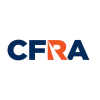Compass Point Research and Trading Interview Questions
The Interview Experience is a score from 1 star (very negative) to 5 stars (very positive) generated based on the Interview Insights at this company.
The number you see in the middle of the doughnut pie chart is the simple average of these scores. If you hover over the various sections of the donut, you will see the % breakdown of each score given.
The percentile score in the title is calculated across the entire Company Database and uses an adjusted score based on Bayesian Estimates (to account for companies that have few interview insights). Simply put, as a company gets more reviews, the confidence of a "true score" increases so it is pulled closer to its simple average and away from the average of the entire dataset.
- Very Negative
- Negative
- Neutral
- Positive
- Very Positive
The Interview Difficulty is a score ranging from very difficult (red) to very easy (green) generated based on the Interview Insights at this company.
The number you see in the middle of the doughnut pie chart is the simple average of these scores. The higher the number, the more difficult the interviews on average. If you hover over the various sections of the doughnut, you will see the % breakdown of each score given.
The percentile score in the title is calculated across the entire Company Database and uses an adjusted score based on Bayesian Estimates (to account for companies that have few interview insights). Simply put, as a company gets more insights, the confidence of a "true score" increases so it is pulled closer to its simple average and away from the average of the entire data set.
- Very Easy
- Easy
- Average
- Difficult
- Very Difficult
The % of Interns Getting a Full Time Offer chart is meant to provide a realistic estimate of the hiring practices of the company based on the reviews at this company.
The number you see in the middle of the doughnut pie chart is the simple average of these scores. If you hover over the various sections of the doughnut, you will see the % breakdown of each score given.
The percentile score in the title is calculated across the entire Company Database and uses an adjusted score based on Bayesian Estimates (to account for companies that have few reviews). Simply put, as a company gets more reviews, the confidence of a "true score" increases so it is pulled closer to the simple company average and away from the average of the entire data set.
- 0%
- 10%
- 20%
- 30%
- 40%
- 50%
- 60%
- 70%
- 80%
- 90%
- 100%
Interviews at Compass Point Research and Trading
Interview Questions & Answers - Compass Point Research and Trading Examples
Summer Associate Intern Interview - Equity Capital Markets
The in-person interviews were with 6 different people. There were 4 interviews: the first was with an analyst, the second with 2 first year associates, the 3rd with another analyst, and the 4th with the Managing Director and his associate. Overall, the interviews were much more technical than the phone interview. I was asked if I had done any valuations before and asked me to run them through a DCF model. Asked about my Excel skills and general computer skills. Asked behavioral questions about teamwork and prior team experiences, including team difficulties and team leadership abilities. All 4 interviews lasted a total of about 2.5 hrs, one after the other.
The last bit of the interview process occurred after the in-person interviews. I was called the next day and informed that I had progressed to the last round of the application process, an Excel test. The test involved use of various Excel functions, including vlookup, hlookup, pivot table use, and nested functions. It took me about 5 hours to complete.
I was offered one of the two internship positions about 4 days after I submitted the Excel test.
Upon answering, I was asked increasingly detailed questions such as "How did you calculate cost of debt & equity", "Why did you use the market debt instead of book debt", etc.
Followed by:
"How did you overcome that situation and what have you done to improve"
"Please explain to us your understanding of the differences between the two sectors"
ER Intern Interview -
First was mostly fit and learning about me. The next two had some technical questions but again, mostly fit/why you questions. Last guy was almost all technical questions.








or Want to Sign up with your social account?